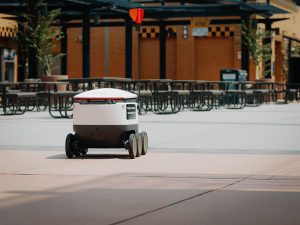AI in Asia
 Unleashing the Power of Artificial Intelligence in the Asia Pacific Region: The good, the bad and the unknown.
Unleashing the Power of Artificial Intelligence in the Asia Pacific Region: The good, the bad and the unknown.
“We need to be super careful with AI. Potentially more dangerous than nukes” – Elon Musk, CEO of SpaceX, Tesla and owner X – formerly known as Twitter
“Success in creating effective AI could be the biggest event in the history of our civilization. Or the worst… We just don’t know.” – Stephen Hawking, Theoretical Physicist
Whether you are the world’s richest or the world’s smartest, when it comes to the topic of AI, we either love it, or we hate it, but it appears AI is here and it’s here to stay.
The Asia Pacific Region is one of the world’s economic powerhouses, so it’s not surprising that AI is a hot topic throughout the region when it comes to business, tech start-ups and investment.
 There’s no doubt Artificial Intelligence (AI) has the potential to revolutionize the Asia Pacific (APAC) region in numerous ways, offering unprecedented opportunities for economic growth, innovation, and societal advancements. However, alongside this potential, there are also challenges to address.
There’s no doubt Artificial Intelligence (AI) has the potential to revolutionize the Asia Pacific (APAC) region in numerous ways, offering unprecedented opportunities for economic growth, innovation, and societal advancements. However, alongside this potential, there are also challenges to address.
Let’s take a look at both the pros and the cons.
Economic Growth and Innovation:
AI technologies have immense potential to drive economic growth and innovation in the APAC region. According to a report by McKinsey, AI applications could create up to $1.6 trillion of additional economic value in the region by 2030. Industries such as healthcare, finance, manufacturing, and agriculture can harness AI to optimize processes, improve productivity, and achieve operational efficiency, leading to greater competitiveness.
 Enhancing Quality of Life:
Enhancing Quality of Life:
AI can significantly improve the quality of life for people in the APAC region. The integration of AI technologies in healthcare can expedite medical diagnosis, improve treatment outcomes, and enhance patient care. Additionally, AI-powered solutions in transportation, urban planning, and energy management can lead to smarter and more sustainable cities, offering improved living conditions to citizens.
Empowering Small Businesses:
AI has the potential to level the playing field for small and medium-sized enterprises (SMEs) in the APAC region. By leveraging AI-driven tools and technologies, smaller businesses can automate processes, gain valuable insights from data analytics, and enhance customer experiences. This enables them to compete more effectively with larger corporations while fostering economic growth and job creation.
“The question is not whether intelligent machines can have any emotions but whether machines can be intelligent without any emotions.” – Marvin Minsky, Cognitive Scientist and Co-founder of AI
 AI Adoption in the ASEAN region:
AI Adoption in the ASEAN region:
While Singapore leads the AI implementation in the region, countries like Malaysia and Vietnam are also showing signs of AI development, although adoption rates remain low. The lack of critical infrastructure and resources pose challenges for these countries to capitalize on the benefits of AI fully. However, there is a growing awareness among businesses about the immense potential of AI, and efforts are being made to invest in AI technologies.
Financial Services:
AI-infused process automation in the financial services industry has the potential to streamline customer-facing processes, reduce costs, and enhance the customer experience. Singapore is at the forefront of technological advancements in this sector, but other ASEAN countries need to accelerate basic digitization efforts before adopting advanced AI applications. Fintech startups are expected to drive most of the AI developments in financial services, providing competition to traditional financial institutions.
Travel:
AI has evolved dramatically in the travel industry, enabling applications like automated chatbots, product recommendations, and cybersecurity measures. Southeast Asia, however, faces challenges in terms of cybersecurity and data compliance. Companies like Global Travel are leveraging AI to protect confidential traveler information and identify and mitigate cyberthreats effectively.
 Transport:
Transport:
Ride-hailing company Grab has partnered with the National University of Singapore to establish an AI laboratory focused on developing AI solutions for urban transport. By utilizing AI algorithms, Grab aims to improve mobility and liveability in Southeast Asian cities by analysing real-time traffic data and understanding passenger preferences.
Healthcare:
Healthcare in Southeast Asia combines state-funded care with private options. From processing insurance claims to generating accurate hospital bill estimates, AI is being adopted by healthcare insurers and medical groups. Government agencies in Singapore are also leveraging AI to analyze patient data for improved diagnostic outcomes and insights into potential treatments. Health tech startups in Malaysia are developing AI-based solutions to increase access to healthcare professionals and predict medical needs.
Education:
AI chatbots and predictive analytics algorithms are being utilized in the education sector to ease the workload of teachers and reduce school dropouts. However, IT infrastructure improvements and increased internet access are necessary before widespread adoption of AI can be realized in some ASEAN countries.
 Retail:
Retail:
Retailers in Southeast Asia are embracing AI to enhance the customer experience, optimize pricing strategies, and personalize recommendations. Lazada, an online marketplace, uses AI-driven apps to showcase products tailored to users’ preferences based on viewing and purchasing history. Still, attention must be paid to proper implementation to avoid valueless novelties or threats to privacy.
Human Resources:
AI-powered tools are being employed in HR functions like recruitment, payroll, and reporting. Startups like Evie.ai provide AI recruitment coordinators to streamline interview scheduling and coordination. In the legal domain, AI engines can analyze legal contracts and ensure consistency based on a company’s policies, helping with approvals and task allocation.
Will we rule AI, or will it rule us. That is the ultimate question.
“Artificial intelligence is the future, not only for Russia but for all humankind. It comes with colossal opportunities, but also threats that are difficult to predict. Whoever becomes the leader in this sphere will become the ruler of the world.” – Vladimir Putin, President of Russia
But there are challenges on the horizon.
“The good and the bad when it comes to AI depends on who gets to define ‘good’ and who gets to define ‘bad.’” – Kate Crawford, Scholar and Senior Principal Researcher at Microsoft
Ethical Considerations:
As AI applications become more pervasive, it is crucial to address ethical concerns surrounding privacy, security, and bias. For example, AI-powered surveillance systems may encroach on individual privacy, necessitating careful regulation. Additionally, ensuring the transparency and fairness of AI algorithms is vital to avoid reinforcing existing biases related to gender, ethnicity, or socioeconomic factors.
 Skill Shortage and Workforce Displacement:
Skill Shortage and Workforce Displacement:
The widespread adoption of AI in the APAC region may require upskilling the workforce to adapt to new demands. However, challenges lie in the availability of talent and the rapid pace at which AI technologies evolve. There is a need for educational programs and initiatives to cultivate AI skills that are equitable, accessible, and encourage lifelong learning to address the potential job displacement associated with automation.
Professor Li Fei-Fei, a renowned expert in AI and the founder of AI4ALL, suggests, “Developing AI systems that are purposeful, fair, and accountable is of paramount importance. APAC needs to adopt ethical guidelines and governance frameworks that ensure transparency, protect privacy, and minimize bias.”
An acclaimed thought leader in AI through her revolutionary computer vision research, Fei-Fei has had transformational industry impact democratizing AI, pioneering future technological innovations, and advocating diversity in STEM and AI internationally.
“AI is not a replacement for humans; it is about amplification humans”, Fei-Fei says.
She left her role as chief scientist of AI/ML (artificial intelligence/machine learning) at Google Cloud in October 2018 after being criticized for comments she made relating to the controversial Project Maven initiative with the Pentagon, which saw Google AI used to identify drone targets from blurry drone video.
“AI will automate tasks but also create new opportunities for humans to solve the big challenges facing society.” – Andrew Ng, AI Researcher and Co-founder of Coursera
The Asia Pacific region stands on the brink of an AI revolution, with the potential to harness this technology for economic growth, innovation, and societal advancement.
Many in this field believe that by seizing the opportunities presented by AI, the APAC region can empower businesses, improve quality of life, and lead the way in shaping a sustainable future.
However, those in more human focused fields remind us that it is important to address challenges related to ethics, workforce displacement, and skill shortages to ensure an inclusive and responsible AI adoption process.
By doing so, the APAC region may be able to leverage the transformative capacity of AI while safeguarding the well-being of individuals and communities.
“AI is likely to be the best or worst thing ever to happen to humanity.” – Max Tegmark, Physicist and Author
Attributions:
This article draws insights from the following sources:
“Artificial Intelligence, Jobs, and the Future of Work in the Asia Pacific,” McKinsey, 2018.
“Artificial Intelligence and the Future of Cities in Asia,” World Economic Forum, 2019.
Interview with Professor Li Feifei, Founder of AI4ALL.